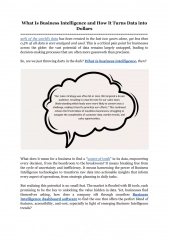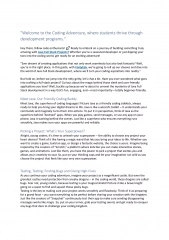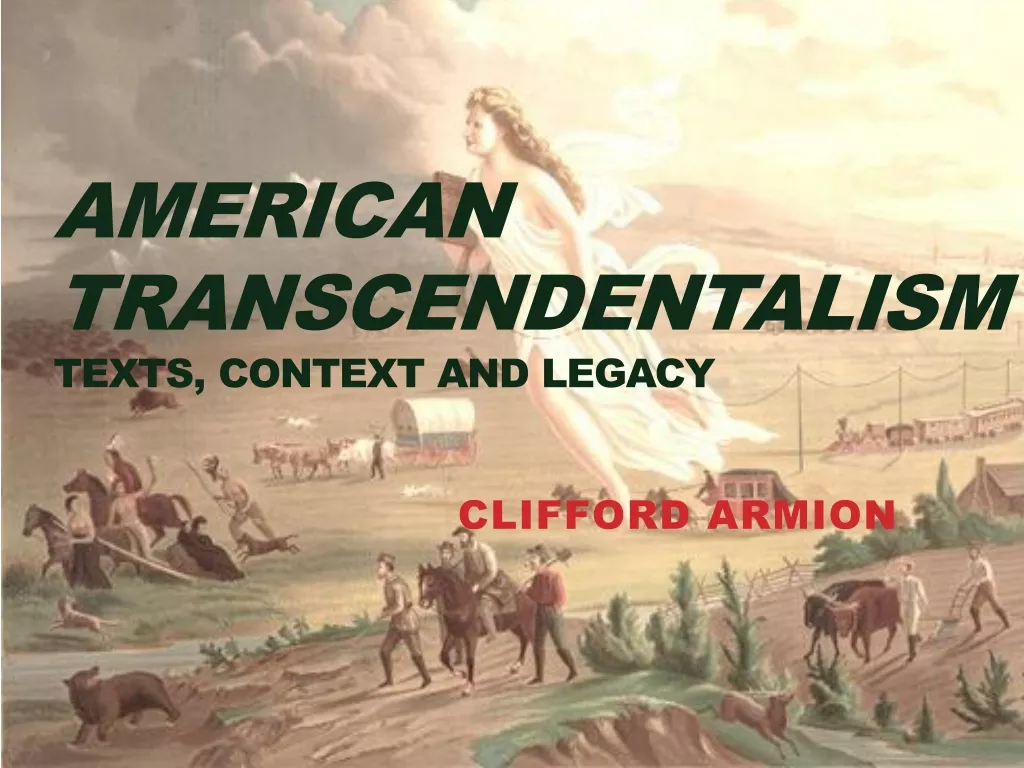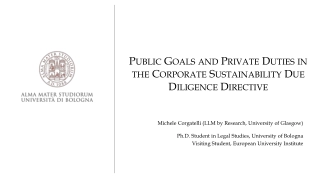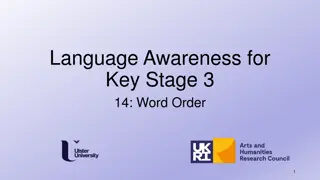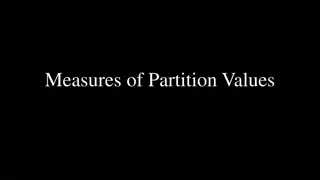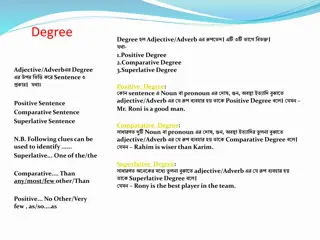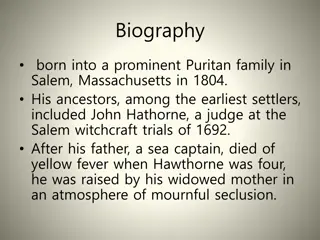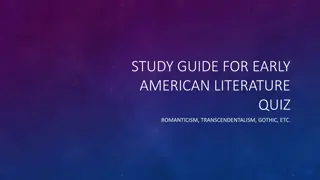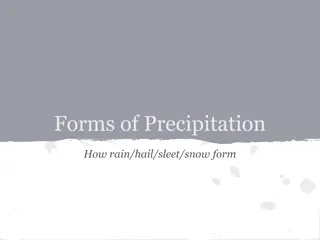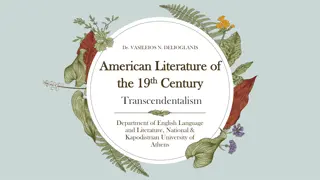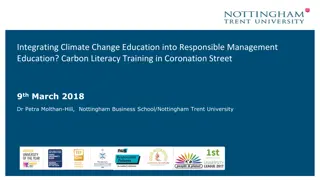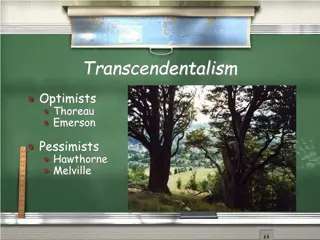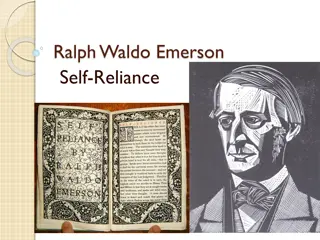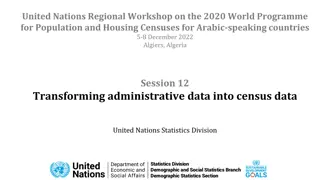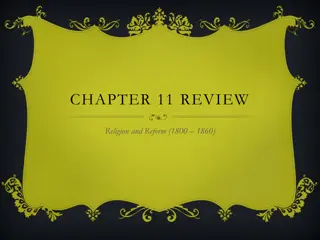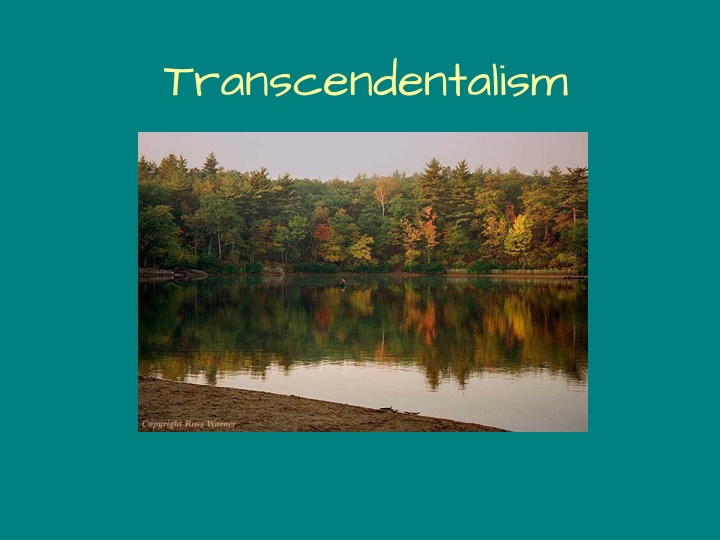
Exploring Transcendentalism - Philosophy, Beliefs, and Origins
Delve into the essence of Transcendentalism, a philosophical movement originating in the mid-1800s centered around Boston and Concord, MA. Discover its core beliefs, including the idea of an ideal spiritual state beyond the physical, the importance of the individual as the center of the universe, and the concept of self-realization for virtue and happiness.
Download Presentation

Please find below an Image/Link to download the presentation.
The content on the website is provided AS IS for your information and personal use only. It may not be sold, licensed, or shared on other websites without obtaining consent from the author. If you encounter any issues during the download, it is possible that the publisher has removed the file from their server.
You are allowed to download the files provided on this website for personal or commercial use, subject to the condition that they are used lawfully. All files are the property of their respective owners.
The content on the website is provided AS IS for your information and personal use only. It may not be sold, licensed, or shared on other websites without obtaining consent from the author.
E N D
Presentation Transcript
What does transcendentalism mean? There is an ideal spiritual state which transcends the physical and empirical. A loose collection of eclectic ideas about literature, philosophy, religion, social reform, and the general state of American culture. Transcendentalism had different meanings for each person involved in the movement.
Where did it come from? Ralph Waldo Emerson gave German philosopher Immanuel Kant credit for popularizing the term transcendentalism. It began as a reform movement in the Unitarian church. It is not a religion more accurately, it is a philosophy or form of spirituality. It centered around Boston and Concord, MA. in the mid-1800 s. Emerson first expressed his philosophy of transcendentalism in his essay Nature.
What did Transcendentalists believe? The intuitive faculty, instead of the rational or sensical, became the means for a conscious union of the individual psyche (known in Sanskrit as Atman) with the world psyche also known as the Oversoul, life-force, prime mover and G-d (known in Sanskrit as Brahma).
Basic Premise #1 An individual is the spiritual center of the universe, and in an individual can be found the clue to nature, history and, ultimately, the cosmos itself. It is not a rejection of the existence of G-d, but a preference to explain an individual and the world in terms of an individual.
Basic Premise #2 The structure of the universe literally duplicates the structure of the individual self all knowledge, therefore, begins with self- knowledge. This is similar to Aristotle's dictum "know thyself."
Basic Premise #3 Transcendentalists accepted the concept of nature as a living mystery, full of signs; nature is symbolic.
Basic Premise #4 The belief that individual virtue and happiness depend upon self-realization this depends upon the reconciliation of two universal psychological tendencies: 1.The desire to embrace the whole world to know and become one with the world. 2.The desire to withdraw, remain unique and separate an egotistical existence.
Who were the Transcendentalists? Ralph Waldo Emerson Henry David Thoreau Amos Bronson Alcott Margaret Fuller Ellery Channing
Ralph Waldo Emerson 1803-1882 Unitarian minister Poet and essayist Founded the Transcendental Club Popular lecturer Banned from Harvard for 40 years following his Divinity School address Supporter of abolitionism
Henry David Thoreau 1817-1862 Schoolteacher, essayist, poet Most famous for Walden and Civil Disobedience Influenced environmental movement Supporter of abolitionism
Amos Bronson Alcott 1799-1888 Teacher and writer Founder of Temple School and Fruitlands Introduced art, music, P.E., nature study, and field trips; banished corporal punishment Father of novelist Louisa May Alcott
Margaret Fuller 1810-1850 Journalist, critic, women s rights activist First editor of The Dial, a transcendental journal First female journalist to work on a major newspaper The New York Tribune Taught at Alcott s Temple School
Ellery Channing 1818-1901 Poet and especially close friend of Thoreau Published the first biography of Thoreau in 1873 Thoreau, The Poet-Naturalist
Context Context refers to the world in which a text was written. The following informational essay will provide you with information about the context of Into the Wild. Understanding why something was written is key to understanding the text itself and later will become crucial to your analysis. Directions: Read each paragraph. Give the paragraph a heading. Then in the column to the right, explain what the paragraph tells you to expect from the novel
Missing Teen Missing Teen Video and Article
Resources American Transcendental Web: http://www.vcu.edu/engweb/transcendentalism/index.html American Transcendentalism: http://www.wsu.edu/~campbelld/amlit/amtrans.htm PAL: Chapter Four http://www.csustan.edu/english/reuben/pal/chap4/4intro.html

